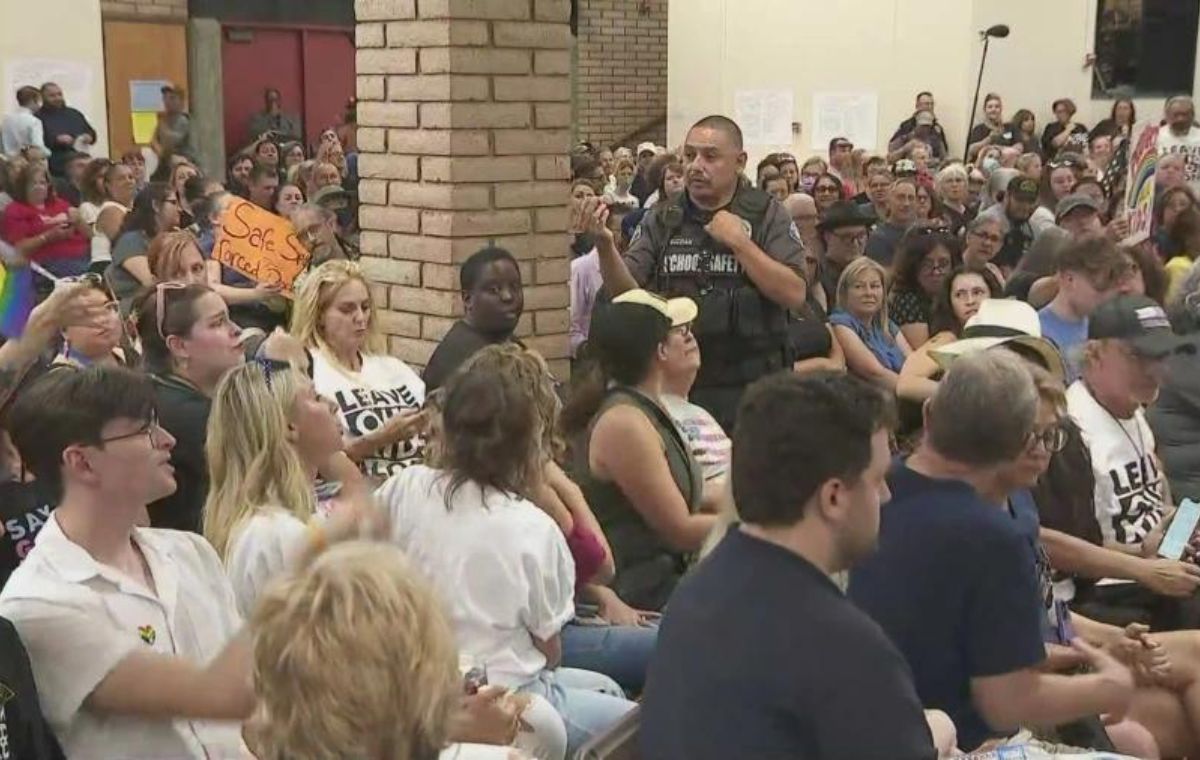In the realm of written content creation, two pivotal aspects to consider are “perplexity” and “burstiness.” Perplexity quantifies the intricacy of the text, while burstiness evaluates the diversity of sentence structures. Human writers often demonstrate higher burstiness, artfully interspersing short and long sentences. Conversely, AI-generated texts tend to exhibit uniform sentence lengths. It is vital to strike the right balance of perplexity and burstiness when generating content, ensuring it captivates readers with its originality and engaging flow.
Today, we delve into a contentious matter that unfolded in a California school district, where the approval of a polarizing policy requiring parental notification for transgender students took center stage. The Chino Valley Unified School District witnessed a substantial turnout of hundreds during a fervent school board meeting, culminating in a 4-1 vote in favor of the policy.
As per the new policy, staff must promptly inform parents in written form within three days when a student expresses their desire to identify with a gender different from what is stated on their birth certificate. Additionally, the notification applies to students seeking a pronoun change or to be addressed by a name not listed in official school records. Even requests for using a different restroom trigger the notification policy.
The Thursday night board meeting, where the policy was put to vote, lasted several hours and brimmed with tension. Amidst the charged atmosphere, State Superintendent of Public Instruction, Tony Thurmond, voiced his opposition to the policy during the public comment segment. However, the situation escalated, and Thurmond’s speech was abruptly interrupted, leading to a heated exchange with the audience before his eventual exit from the venue.
The policy’s approval garnered mixed reactions from the sizable audience, leaving them deeply divided on the matter. The controversy surrounding the policy has sparked heated debates, attracting national attention and intensifying the discourse among both its supporters and critics.
Prior to the vote, Sonja Shaw, a parent and Board president in the Chino Valley Unified School District, expressed confidence in having a board majority that upholds parental rights. As one of the policy’s proponents, Shaw asserted that the bottom line was ensuring parents’ right to be informed, emphasizing that Chino Valley parents deserve clarity on the education their children receive.
The policy itself bears similarities to Assembly Bill 1314, which surfaced earlier but never successfully passed. The proposed bill aimed to mandate California school districts to notify parents when their children identified as gender nonconforming. However, critics raised concerns, arguing that such a measure could inadvertently expose and potentially force children into secrecy.
During an April meeting on the issue, a Chino Valley student criticized the resolution, highlighting that its implementation posed significant dangers to transgender students and contradicted the fundamental principles of protection, support, and equality. This sentiment was echoed by Kristi Hirst, a former educator with 14 years of experience in the district and a mother of three children within the Chino Valley Unified School District. Hirst firmly believed that the policy propagated mistrust and undermined the collaborative effort between parents and educators to foster a safe and conducive learning environment for all students.
Moreover, Hirst is the founder of Our Schools USA, an organization dedicated to empowering parents, students, and community members to safeguard quality public education for all students. In her view, students universally concurred that the policy ran counter to their best interests and that of the education system at large. The perpetually heightened vigilance the policy demanded, regardless of whether a student was directly targeted or not, was a cause for concern.
Alison Triessl, KTLA’s legal analyst, weighed in on the policy’s legality, asserting that it directly contradicted the California Department of Education and the state’s constitution, which safeguarded minors’ right to privacy concerning their gender identity and notification. She deemed the policy legally untenable.
California Attorney General Rob Bonta voiced strong opposition to the policy, emphasizing that it stripped students of their freedom and autonomy, potentially placing them in precarious situations. Bonta urged CVUSD to prioritize the rights and privacy of all students, especially the most vulnerable ones, and to ensure their full participation in educational and extracurricular opportunities.
Critics further highlighted the potential burden on teachers and staff in implementing the policy, adding to their already substantial responsibilities and reluctance to report such sensitive information.
In conclusion, the contentious policy on parental notification of transgender identification has sparked impassioned discussions within the Chino Valley Unified School District and beyond. As the issue continues to unfold, stakeholders grapple with finding common ground to protect students’ rights, foster understanding, and uphold the principles of inclusivity and respect in the realm of education.
